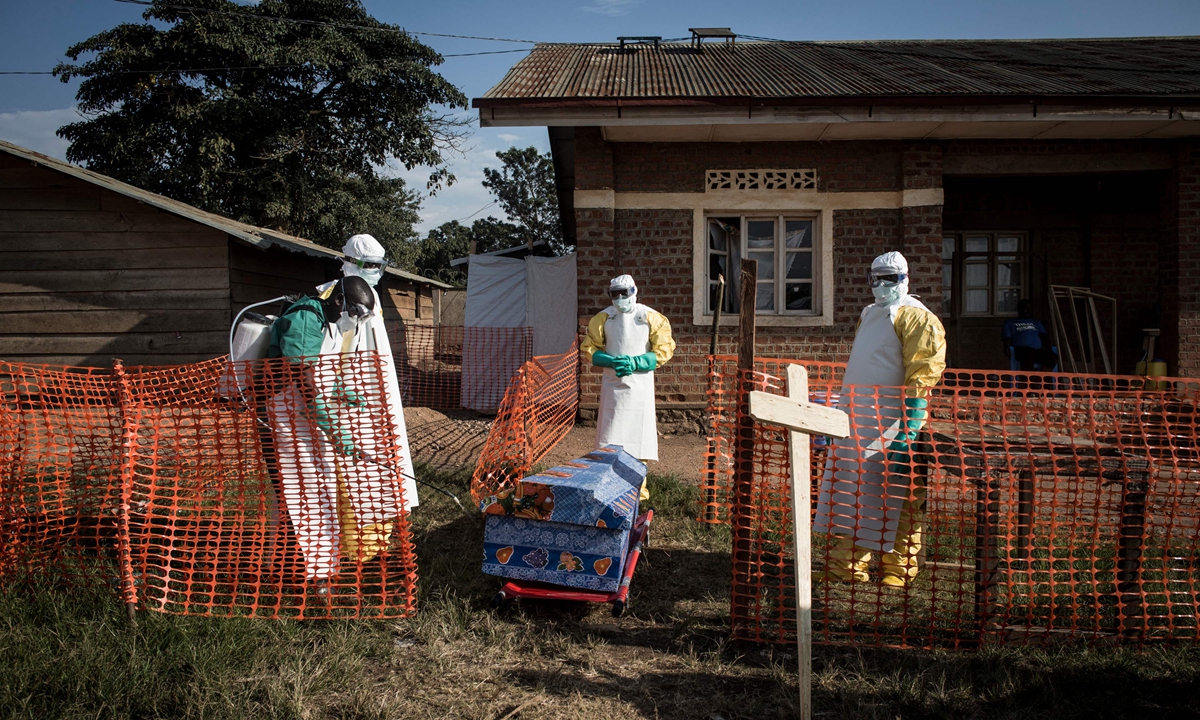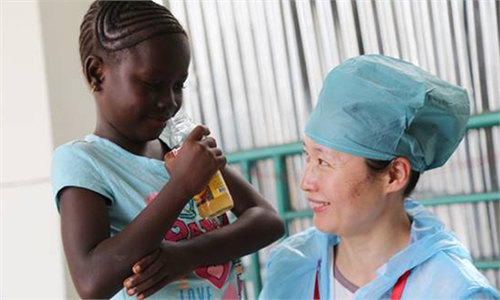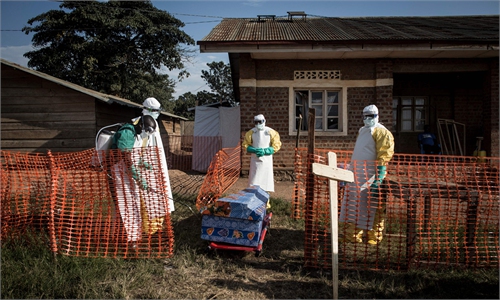
Medical workers disinfect the coffin of a deceased unconfirmed Ebola patient inside an Ebola Treatment Centre run by the Alliance for International Medical Action (ALIMA), in Beni on August 13, 2018. Photo: VCG
Ebola survivors can relapse and trigger outbreaks at least five years after infection, and long-term follow-up of former patients is needed to prevent devastating flare-ups, according to new research.
Scientists already knew Ebola could lie dormant in survivors, who test negative because the virus is in tissue rather than circulating in the blood.
But analysis of an outbreak in 2021 in Guinea, published Wednesday in the journal Nature, found these "virus reservoirs" appear able to awaken and cause new infections and transmission years on.
To trace the source of the Guinea outbreak, which involved 16 confirmed cases, 12 of whom died, researchers analyzed the genomes of samples from several patients.
Ebola outbreaks are usually thought to result from the virus "spilling" from an animal host to a human.
If the virus had been circulating actively in the community since then, it would have accumulated a certain number of mutations as it spread.
Instead, the 2021 virus had just 12 changes, "far fewer than would be expected... during six years of sustained human-to-human transmission."
That strongly suggests the source was a reactivated virus that had lain dormant in a survivor, said Alpha Keita, a researcher at the University of Montpellier who led the study.
"This is the longest known time between the declared end of an epidemic and a viral resurgence," he told AFP.
"The possibility that transmission from an individual infected during a previous epidemic could be source of a new outbreak."
Sometimes a spike in Ebola antibodies can be detected in survivors at a given time, a possible sign that the body is responding to a resurgent virus.
Around two-thirds of Ebola survivors have high antibody levels even five years after infection, but "the question is what happens if there's a resurgence in the people whose immunity has dropped," said Keita.
The study's findings have 'considerable implications for public health and care of survivors of Ebola," said Robert F. Garry of Tulane University's School of Medicine.
"Humans can now be added to the list of intermediate hosts that can serve as long-term Ebola 'reservoirs' and trigger new outbreaks," he wrote in a review commissioned by Nature.
Even asymptomatic individuals "could be the starting point" for an outbreak, Robert F. Garry warned.
AFP



